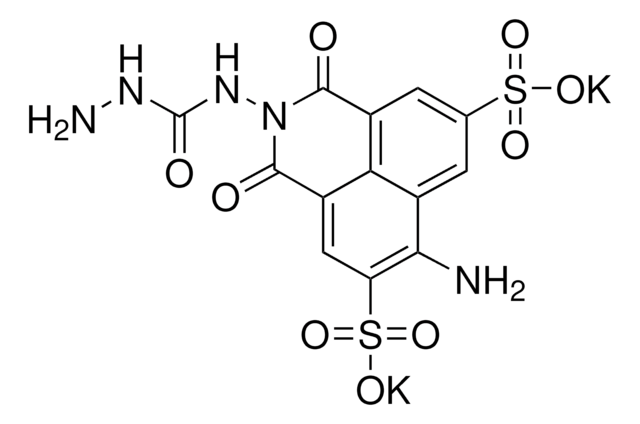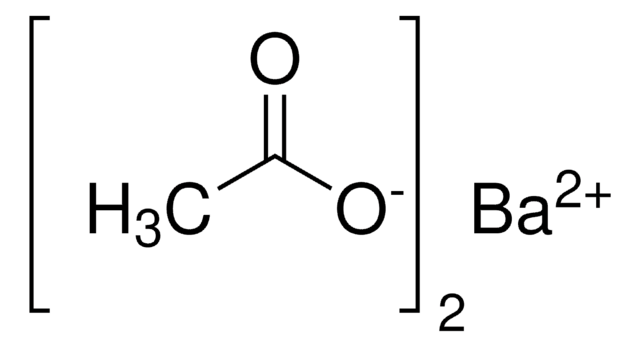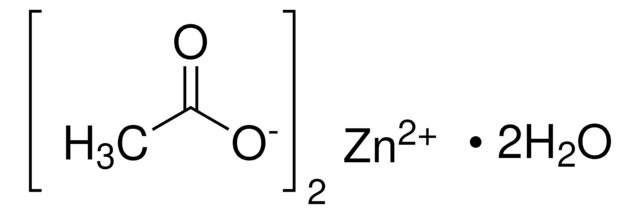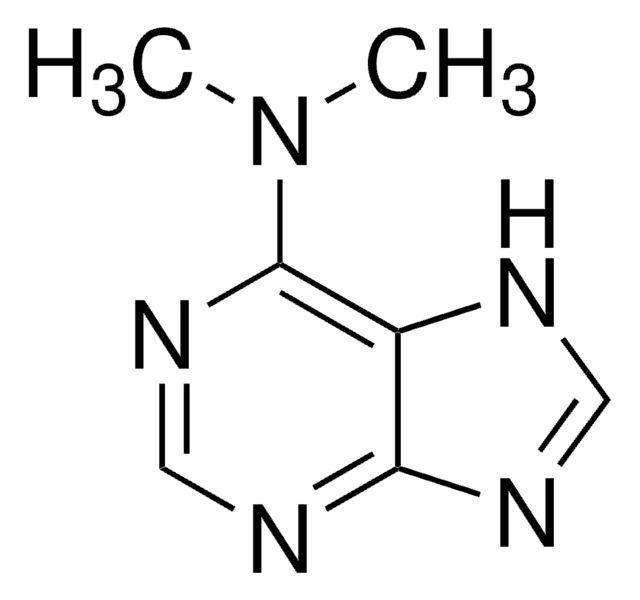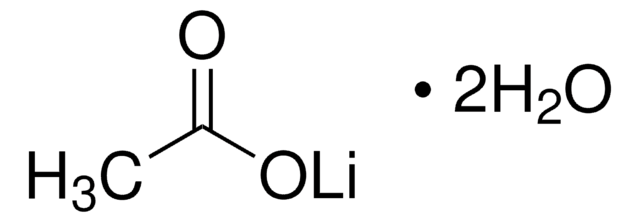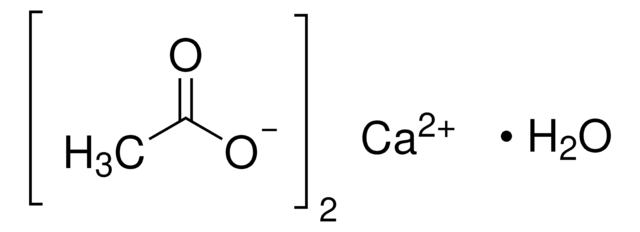M0631
Magnesium acetate tetrahydrate
≥99%, ReagentPlus®
Synonym(s):
Acetic acid magnesium salt
About This Item
Recommended Products
product line
ReagentPlus®
Assay
≥99%
form
powder
solid
mp
72-75 °C (lit.)
SMILES string
O.O.O.O.CC(=O)O[Mg]OC(C)=O
InChI
1S/2C2H4O2.Mg.4H2O/c2*1-2(3)4;;;;;/h2*1H3,(H,3,4);;4*1H2/q;;+2;;;;/p-2
InChI key
XKPKPGCRSHFTKM-UHFFFAOYSA-L
Looking for similar products? Visit Product Comparison Guide
Application
- A catalyst in the methanolysis of polylactic acid (PLA) to produce methyl lactate.
- A reagent in the preparation of homochiral metal-organic frameworks by using tartrate ligands.
- A precursor to synthesize magnesium oxide (MgO) fillers for polymer composites.
Legal Information
Storage Class Code
13 - Non Combustible Solids
WGK
WGK 1
Flash Point(F)
Not applicable
Flash Point(C)
Not applicable
Certificates of Analysis (COA)
Search for Certificates of Analysis (COA) by entering the products Lot/Batch Number. Lot and Batch Numbers can be found on a product’s label following the words ‘Lot’ or ‘Batch’.
Already Own This Product?
Find documentation for the products that you have recently purchased in the Document Library.
Customers Also Viewed
Our team of scientists has experience in all areas of research including Life Science, Material Science, Chemical Synthesis, Chromatography, Analytical and many others.
Contact Technical Service


